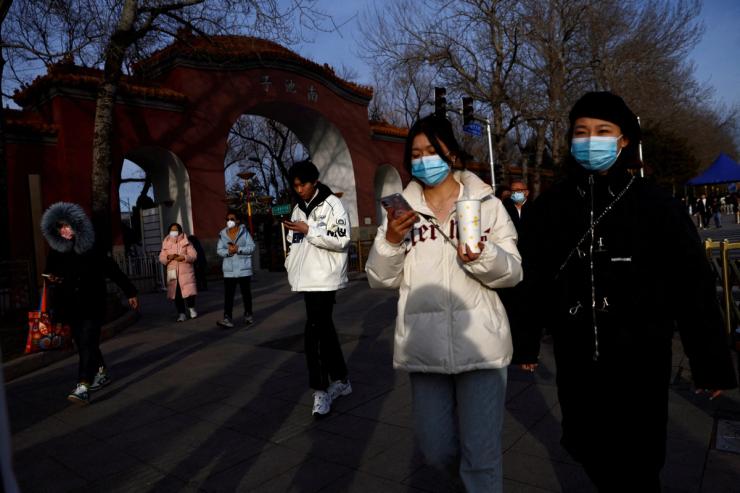
Semafor Signals
Chinese residents fear the return of COVID-era controls

The News
Residents across several Chinese provinces are alarmed at the apparent resurgence of pandemic-era digital health codes — which appear to have remained on government apps on people’s phones.
The red, yellow, and green code, which was required for day-to-day travel during China’s years-long COVID lockdown, was abruptly scrapped a year ago — along with other measures. But as a wave of respiratory illness sweeps the nation, residents are concerned that the government will, once again, restrict people’s movements through location tracking and mandatory testing.
Chinese authorities reportedly censored a local news outlet’s story about some provinces bringing back the COVID-tracking app, which cited trending social media posts about the hashtag “Green health codes reappear in Sichuan, Guangdong.” Officials told the outlet that some aspects of the government app were never changed, and that the app’s ability to impose travel restrictions had been deactivated since February.
SIGNALS
Chinese social media users were quick to react to the health codes’ possible resurgence. A WeChat user published an essay calling for Chinese citizens to protest the revival of the anti-epidemic measure. “While this news has yet to be confirmed, there is no smoke without fire,” the user Lao Xiao wrote, adding that the fact that authorities confirmed the data-collecting tool was never removed from the government app is anxiety-inducing. “Remember how obedient and submissive we all were? Why would the powers-that-be want to toss aside such a handy little tool?” the user wrote.
Anxiety over stringent health measures comes as China marks one year since its massive zero-COVID protests. In Beijing, police patrolled the site of last year’s demonstrations, while Shanghai was under tight security. “China in the years to come will have to grapple with the aftermath or Covid Zero,” a political science professor told Bloomberg, adding that the country is suffering a type of “post-traumatic stress.” “Society is on edge,” she said. “The consequence is that the state and society relationship is going to be very tense.”
The surge first got attention after the World Health Organization asked China to provide more information on clusters of pneumonia in children. Some observers claim that the uptick in cases was the result of the abrupt lifting of COVID measures last year, and the lack of immunity in kids who spent their first few years in lockdown. But the WHO, along with doctors in China and abroad, have said that there is no cause for global panic, noting that such a spike in respiratory diseases is not unusual during the winter months. A WHO official said that mycoplasma pneumonia is not actually a reportable disease to the international body, and that it now appears to be declining after a rise in cases over the last few months.

